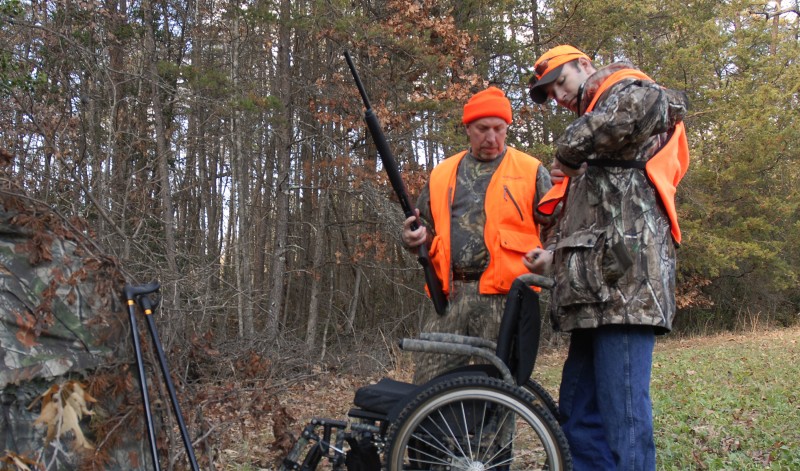
Hikers and mountain bikers may want to take a cue from hunters and wear blaze orange in the woods.
A couple of years ago while about to go on a fall hike in western Rhode Island, I approached a conservation officer in a parking lot with a question about the location of a trailhead.
He answered my question and then had one of his own, “It’s hunting season. You wearing any blaze orange?”
I quickly stalled, began rummaging through my pack, and the best I could come up with was a bandana that may have had some orange on it.
That didn’t pass the test, so he went into the back of his car, got out his own blaze orange vest, and lent it to me after we agreed upon a place for me to leave it after I used it.
In the Ocean State, hikers venturing into state management areas are required to wear 200 square inches of solid daylight fluorescent orange during specific time periods.
With hunting season upon us, hikers and mountain bikers shouldn’t miss the annual spectacle of color. The reds, yellows, and oranges of trees like maple, birch, and beech are ablaze. Place them against a brilliant blue sky and sprinkle in a touch of early snow at higher elevations to make for a splendid day outdoors.
But fall’s brisk temperatures and air often filled with the smell of homey wood stoves also means hunters are out with firearms and bows.
Hikers and bikers should take a cue from the blaze orange-wearing hunters and add bright orange clothing to their fall hiking ensemble. The color is easy to spot. Vests, hats, and jackets all make it so that hiker—and hunter—can be seen through the trees.
Generally, these items don’t cost that much and offer peace of mind to those venturing into the woods. Also, it’s a good idea to not wear colors like white that can resemble the quick flash of a deer tail.
Hikers concerned about being in the woods with hunters should also be aware of vehicles parked at trailheads and along the road that signal there are hunters nearby. Often hunters are aware that hikers frequent certain areas and decide to do their hunting elsewhere. Remember, licensed hunters have taken a hunter safety course. Taught in those classes is to be absolutely certain about your quarry and also what’s beyond it.
Various organizations also offer advice for safe forays into the woods.
The Washington Trails Association, the voice of hikers in the Evergreen State, offers some tips for those venturing out on the pathways during hunting season:
- Wear bright clothing. Make yourself more visible. Choose colors that stand out like red, orange, or green, and avoid black, brown, earth-toned green, and animal-colored clothing.
- Make noise. Whistle, sing, or carry on a conversation as you walk to alert hunters to your presence. Sound carries well across mountain basins, and hunters should be listening for any sounds of animal movement.
- Make yourself known. If you do hear shooting, raise your voice and let hunters know that you are in the vicinity.
Mountain bikers are also out on singletrack, sharing precious real estate with hunters. The New England Mountain Bike Association, advocates for the knobby tired set in the six-state region, also has some tips:
- Find out the dates for hunting season in your state, paying special attention to rifle season and deer hunting season (even shotgun slugs can carry a long way).
- Some states don’t allow hunting or certain types of hunting on Sundays.
- Find out whether the park that you’re riding in allows hunting. Many do, other do not.
- Dress appropriately—put away the white helmets. Stay away from anything white or tan since you don’t want to be mistaken for a deer.
- The best hunting is in the early morning and evening, so be even more careful during these hours.
- Consider wearing bells that can warn hunters that you’re not an animal.
- Be aware the hunting also takes place with permission on private property.
- Poaching still remains a problem in some parks and conservation lands. If you happen upon a person hunting illegally, don’t confront the hunter but report the activity to the local police.
So make an informed decision, and know your comfort level during this time of the year.
Image courtesy of Wikimedia Commons

 Your Privacy Choices
Your Privacy Choices
 The
The